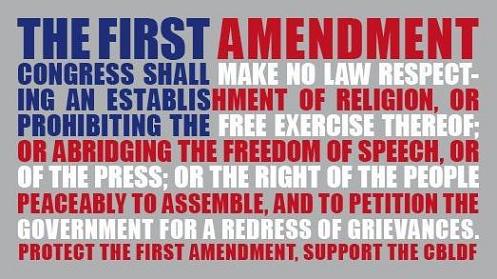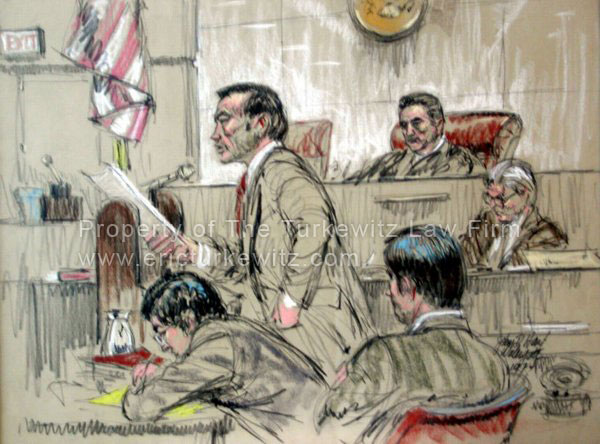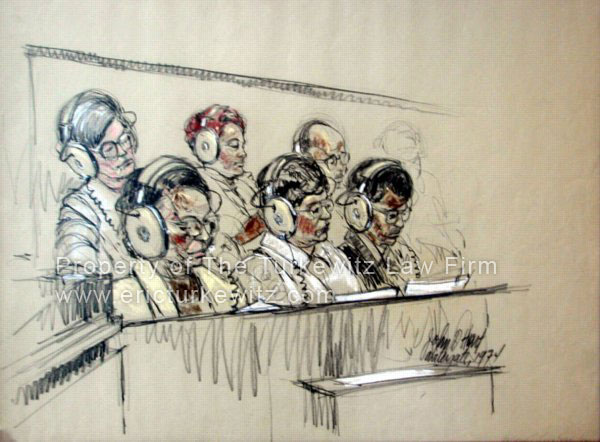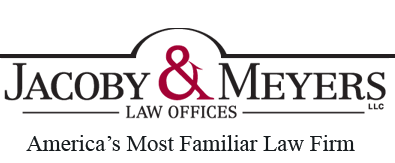 There’s no question that the First Amendment is under attack today people claiming to be from both the right and the left.
There’s no question that the First Amendment is under attack today people claiming to be from both the right and the left.
Let’s start with the right and Donald Trump (to the extent anyone considers Trump a right-winger): On Sunday came the revelation that Trump may try to alter the First Amendment right to free speech because he can’t handle criticism.
This is not hyperbole on my part — I shy away from such things — but comes from Chief of Staff Reince Priebus explicitly saying so to ABC’s Jonathon Karl on Sunday. Priebus stated that they were “looking at” just such a scenario, to amend/abolish the power to speak freely. This was the first of two exchanges on the subject, that you can view online (emphasis added):
KARL: I want to ask you about two things the President has said on related issues. First of all, there was what he said about opening up the libel laws. Tweeting “the failing New York Times has disgraced the media world. Gotten me wrong for two solid years. Change the libel laws?” That would require, as I understand it, a constitutional amendment. Is he really going to pursue that? Is that something he wants to pursue?
PRIEBUS: I think it’s something that we’ve looked at. How that gets executed or whether that goes anywhere is a different story. But when you have articles out there that have no basis or fact and we’re sitting here on 24/7 cable companies writing stories about constant contacts with Russia and all these other matters—
And, in the event anyone wants to chalk this up to “maybe he misspoke,” he made it clear by reiterating it:
KARL: So you think the President should be able to sue the New York Times for stories he doesn’t like?
PRIEBUS: Here’s what I think. I think that newspapers and news agencies need to be more responsible with how they report the news. I am so tired.
KARL: I don’t think anybody would disagree with that. It’s about whether or not the President should have a right to sue them.
PRIEBUS: And I already answered the question. I said this is something that is being looked at. But it’s something that as far as how it gets executed, where we go with it, that’s another issue.
Trump, of course, is (in)famously on record as wanting to “open up our libel laws” to allow him to more freely sue people when he gets irked because news isn’t reported the way he likes. He seems to forget that, in order to be President and debate the issues of the day, he needs to put on his big boy pants when people decide to flay him for his words or conduct.
And this is evident from his prior conduct in bringing bullshit defamation claims to silence people or punish them for exercising free speech rights. Trump hates the First Amendment. And that is a danger.
But as I noted at the start, the First Amendment is also under assault from people who claim to be from the left. Over at UC/Berkeley, that bastion of liberalism, demonstrations over the appearance of right-wing hate mongers for profit MiloYiannopoulos led to the University cancelling his appearance instead of protecting him.
Then the same thing happened to that other hate monger for profit, Ann Coulter. The university canceled her appearance due to concern over the reaction to her, amounting to a”hecklers veto.” By rewarding those that threaten to commit crimes, the university merely empowered them to repeat their un-American conduct of trying to silence speech (instead of rebut) that they disagree with.
You’ll note that I described these people as those “who claim to be from the left.” They aren’t. Even if they say they are.
Neither conservatives nor liberals are opposed to free speech. But authoritarians are. And authoritarians can come from either the ostensible left or the right. What they want most is the ability to exercise power without regard to open debate.
The answer to speech with which we disagree is simple: More speech. ‘Tis the nature of our republic.
Journalists that describe the hoodlums as “left” or “right” are not only making a mistake, but doing a disservice to the country. Call them thugs, anarchists, wannabe dictators or any other name, so long as it doesn’t align with traditional American political parties and values that embrace open debate. Because they aren’t part of that. And yes, that includes Trump (who’s overriding political philosophy, to the extent such things exist, is not right or left, but TrumpFirst).
It is that First Amendment, of course, that gives people the right to criticize governments (among many other things). The First Amendment is not a partisan issue, but a principle of how a democracy functions.
Keep your eyes open folks, because this all looks to get a lot uglier for America. Regardless of which side of the political divide you fall on.
Elsewhere:
Berkeley’s 99 Problems (Greenfield @ Simple Justice)
Donald Trump’s Lawyers Don’t Know Or Don’t Care What Defamation Is (White @ Popehat)
Donald Trump vs. The First Amendment (Cole @ The Nation)
Gawker’s Demise and the Trump-Era Threat to the First Amendment (Tobin @ The New Yorker)






